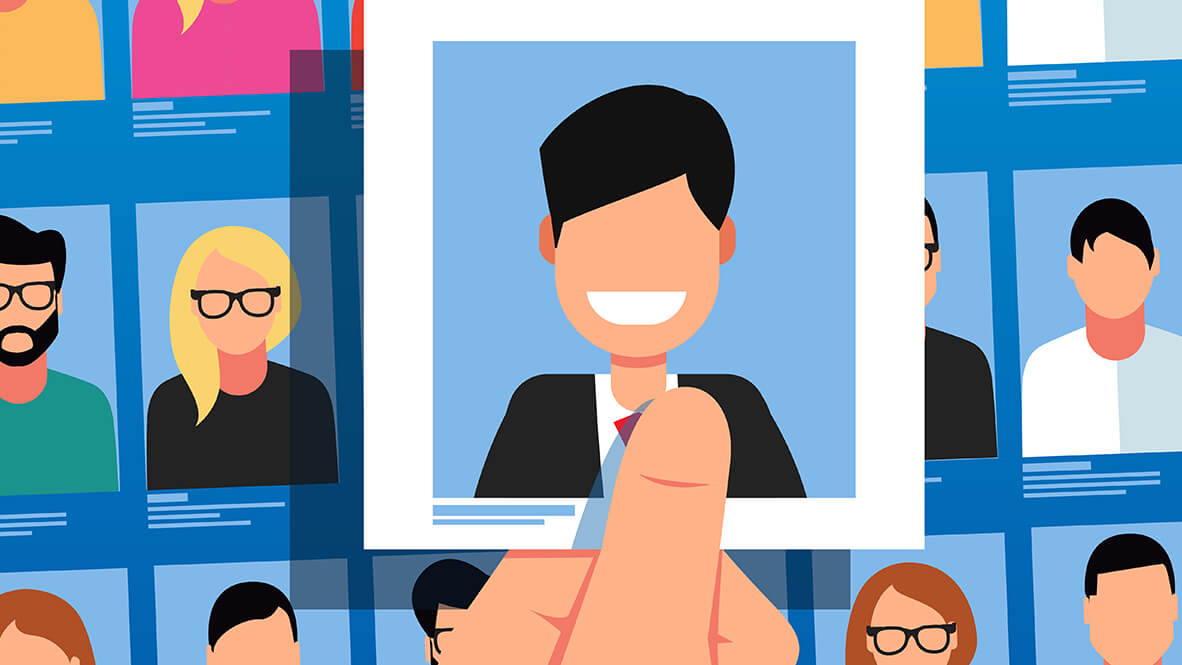In a BOSS* Symposium on Day 2 of the 42nd Congress of the European Society of Cataract and Refractive Surgeons (ESCRS 2024), experts tackled a rarely discussed but critical issue: hidden bias in science and medicine.
Creating an equal playing field for all necessarily involves first adjudging the scope and nature of its unevenness—and nowhere is this more pressing than in STEM topics like ophthalmology. And as it turns out, even experts in vision have issues seeing such latent boundaries to opportunity.
Prof. Mor M. Dickman (The Netherlands) drawing on a clever metaphor, highlighted how ophthalmologists may have their own “blind spots” when it comes to recognizing biases in their field. “It’s easier to spot someone else’s blind spot than to see our own,” Prof. Dickman stated, setting the tone for the session to come.

Starting with the evidence
To explore this topic, Prof. Dickman emphasized the importance of objective data. “We are a scientific society, so let’s start with the evidence,” he said. A survey conducted among ESCRS members provided insight into the experiences of 229 respondents, with a mix of gender, geography and sexuality. One-third of the participants were female, while two-thirds were male.
The survey results revealed uncomfortable truths: “Sadly, one-third of ESCRS members have experienced some form of bias related to gender and age,” Prof. Dickman reported.
Even more concerning were the results of such hidden biases. “Forty percent (40%) expect to be judged or denied career opportunities in the future based on who they are,” Prof. Dickman said.
The survey went beyond these symptoms to identify actionable underlying causes. The issue of access to surgical training was highlighted as a significant barrier, especially for those in lower and middle-income countries. “Females experience more barriers,” Prof. Dickman explained, “with 74% of those facing all barriers identifying as female.”

Towards actionable solutions in inclusivity and minimizing unconscious bias
Despite these challenges, most members did not feel excluded from ESCRS activities, and when they did, it was often perceived as unintentional. Looking to the future, Prof. Dickman emphasized the importance of turning these findings into action. “We plan to use the survey results as a basis for change,” he stated. Focus group discussions at ESCRS will help develop solutions, and the findings will be submitted for publication.
Most importantly, Prof. Dickman stressed, “We need to ensure that access to surgical training is based not on who you are or who you know, but on what you can do and what you want to achieve.” With this forward-thinking approach, the hope is to eliminate hidden biases and create a more equitable future in ophthalmology.
Dr. Sotiria Palioura (Greece) tackled a topic that often slips under the radar in science and medicine—diversity, equity and inclusion in research.
She opened with a question that resonated with the overarching theme of the session. “You may be wondering why we need to discuss diversity, equity and inclusion in science and medicine. After all, we are trained scientists and physicians who know how to be objective and unbiased in how we care for patients.” And over the course of her talk, she delved deeper into the inner workings of such discussions.

Dr. Palioura shared startling insights into the roots of unconscious bias, pointing out that it starts surprisingly early. “When 1,504 children from kindergarten to middle school were asked to draw a scientist, 75% of them drew a white man,” she revealed. She added, “Up until five years ago, a Google search for famous scientists returned four men and one woman—none of whom were people of color.”
The conversation shifted to biases in evaluating CVs, where Dr. Palioura highlighted a clear disparity. “Several studies have shown that CVs from men received higher scores than those from women, and men were 75% more likely to be judged as having leadership qualities,” she said, underscoring the pervasiveness of gender bias.
Finding solutions: The ESCRS’s BOSS initiative
Dr. Palioura acknowledged that these issues extend into healthcare and academia, noting, “Women make up less than 20% of department chairs, less than 40% of residency program directors, and less than 15% of professional society presidents.” To address these inequalities, she introduced the ESCRS’s BOSS (Building Our Sustainable, Inclusive Society) initiative as a step toward building a more equitable future. This initiative is a mainstay of Prof. Filomena Ribeiro’s tenure as President, and has created the opportunity for the sort of discourse prevailing in this Day 2 ESCRS 2024 session.
When it came to finding solutions, Dr. Palioura kept it simple and direct. “It’s not rocket science,” she said. “We need to promote and cite research from underrepresented groups, invite them to speak at conferences, and nominate them for awards.” She also emphasized the importance of mentorship: “As senior physicians, we should mentor individuals outside our usual network.”
Finally, she challenged her peers to take actionable steps, urging them to “recognize your unconscious biases, create a more diverse group of colleagues, advocate for equal pay, and propose practical solutions, like offering childcare at conferences to encourage more participation from women.”
Dr. Palioura left the audience with a clear message: addressing inequality in science and medicine isn’t just about fairness—it’s about making the field better for everyone.
AI: The new superpower in healthcare and beyond
Artificial intelligence (AI) is now impossible to avoid in ophthalmology, and its use is giving rise to a new breed of pitfalls and possibilities for bias. But first, Dr. Dalith Steiger (Switzerland) delved into the power of AI in transforming industries, especially healthcare. She opened with a bold statement: “Over 80% of people believe AI can support their careers.” The question, then, becomes, whether such unbridled power is being used equitably.
Dr. Steiger highlighted how the increasing complexity of our world demands technological assistance. “We are generating about 2.5 exabytes of data per day from 15 billion connected devices globally,” she explained. Analyzing this tidal wave of information requires computing power of up to 10 billion petaflops. In other words, AI isn’t just helpful—it’s necessary.

From healthcare to environmental initiatives, AI is proving to be a game-changer. “AI is optimizing aircraft designs to reduce carbon footprints, driving image recognition in breast cancer, and improving recycling efficiency,” Dr. Steiger noted. She emphasized that AI is also fast-tracking drug discovery and aiding in the early detection of diseases like dementia. “In healthcare, AI is optimizing the diagnosis of infectious diseases and driving the use of intelligent robots in surgery,” she added, painting a picture of a future where AI is at the core of medical advancements.
To make the most of AI in healthcare, Dr. Steiger believes a few critical components are needed: “We need leadership, willing organizations, well-designed AI programs and technology stacks. But most importantly, we need people with AI talent and skills—doctors who understand the power of AI and how to harness it in daily practice.” With that formula, the future of AI in healthcare looks bright—but with such great power also comes the responsibility to use it for the good of all.
Unconscious influencers: Implicit bias at ESCRS 2024
Unfortunately, models trained with artificial intelligence are prone towards developing the very same biases as its creators. In her turn at the microphone, Dr. Amy Johnson (USA) gave a glimpse of the subtle yet powerful world of implicit bias.
She offered up her key definition. “Implicit bias is a concept that influences our daily lives, often without us realizing it. It can shape the way we understand, interact and treat others.”
Drawing from research, Amy highlighted the work of Project Implicit, a non-profit dedicated to studying implicit social cognition. “Implicit bias is unconscious and universal. These biases operate automatically and often do not align with our stated values or beliefs,” she noted. Dr. Johnson emphasized that everyone has biases, which are part of human nature rather than a sign of prejudice.
Addressing the impact, she warned that even small biases can add up over time, creating significant disparities: “Implicit biases influence judgment and decisions, often perpetuating existing stereotypes.” So how do we tackle this sneaky influencer?
According to Dr. Johnson, the key is self-awareness: “Building self-awareness is the first step—recognizing when biases influence our decisions and taking steps to counteract them.” She also recommended objective processes to minimize bias, along with daily reflections to catch unconscious patterns. “Stress, distraction and time pressure can reinforce biases, so being mindful in these moments is crucial,” she advised.
Can AI be trusted with our eyes? What are ophthalmologists worried about?
In her engaging presentation at ESCRS 2024, Rebecca Berghorn (Germany) tackled the complex and pressing issue of AI bias in ophthalmology, exploring whether artificial intelligence can be trusted to deliver unbiased care. She opened with a powerful reminder of AI’s potential: “AI has immense potential to improve healthcare efficiency and outcomes. But it’s not all sunshine and rainbows.”

Ms. Berghorn shared insights from a study asking ophthalmologists about their biggest concerns regarding AI. “What we learned is that even well-trained AI makes mistakes,” she said. More than half of the respondents noted that AI can be misused or produce biased results, raising concerns about fairness across different patient groups. Interestingly, she noted, “In Japan, a major worry is that AI might replace eyecare specialists entirely!”
Addressing the elephant in the room, Ms. Berghorn explained, “Unconscious bias is deeply ingrained in humans, and AI isn’t immune to it. The system doesn’t know it’s biased—it’s just following orders”. She highlighted the need to address sources of bias, including data, algorithm and human bias, to ensure AI systems function fairly and effectively.
Moving forward with caution
On a more hopeful note, Ms. Berghorn outlined the five pillars for reducing AI bias: “We need compliance with quality management systems, highly qualified interdisciplinary teams, cutting-edge algorithms, high-quality, diverse data and a global, robust infrastructure to train AI.” She emphasized that tackling bias isn’t just about better tech—it’s about a better process.
Ms. Berghorn concluded with a call to action: “To mitigate bias, established processes and an interoperable medical ecosystem are crucial. But perhaps most importantly, we need transparency and education for both clinicians and patients.” As AI continues to evolve in ophthalmology, Ms. Berghorn clarified that the human element—awareness, education and ethical oversight—is critical to keeping bias in check.

*BOSS is an exciting new initiative from ESCRS, inspired by the passion of ESCRS President Filomena Ribeiro.
Editor’s Note: Reporting for this story took place at the 42nd Congress of the European Society of Cataract and Refractive Surgery (ESCRS 2024), held from 6-10 September in Barcelona, Spain.



